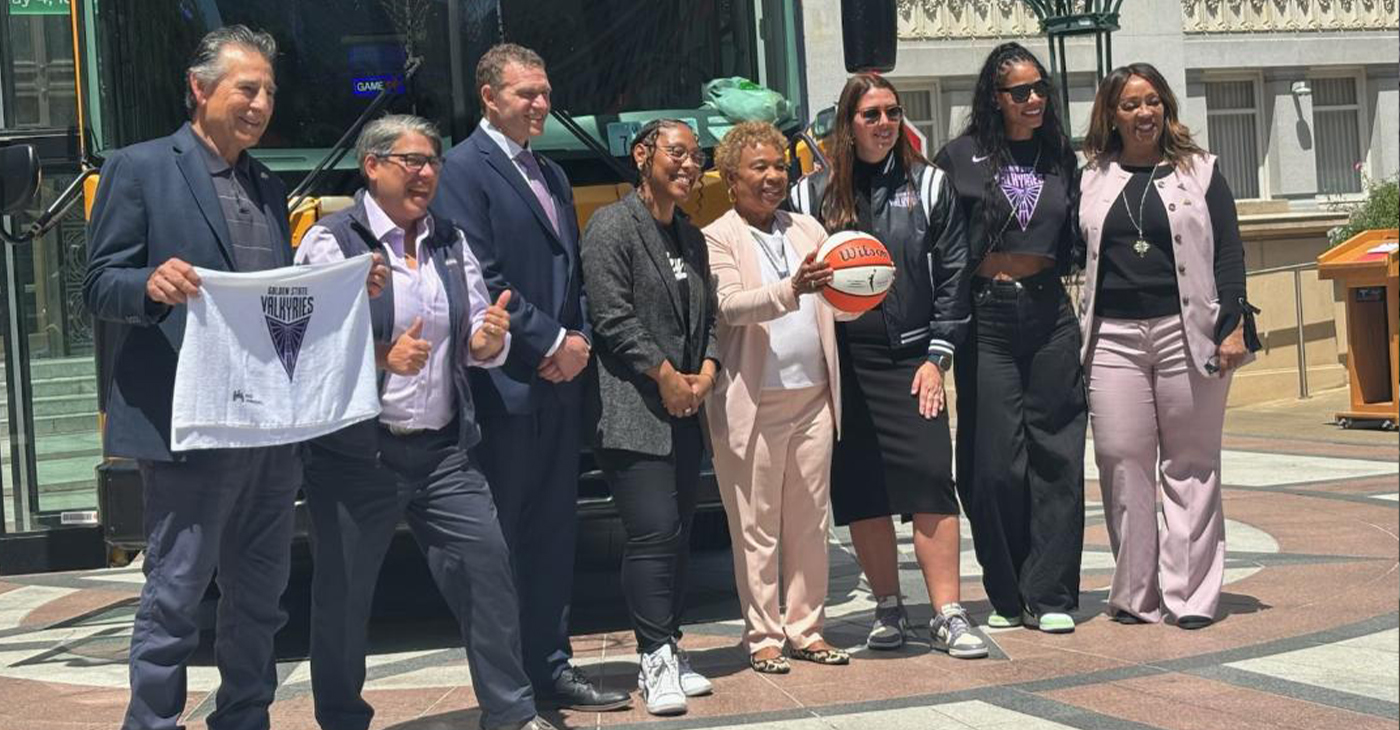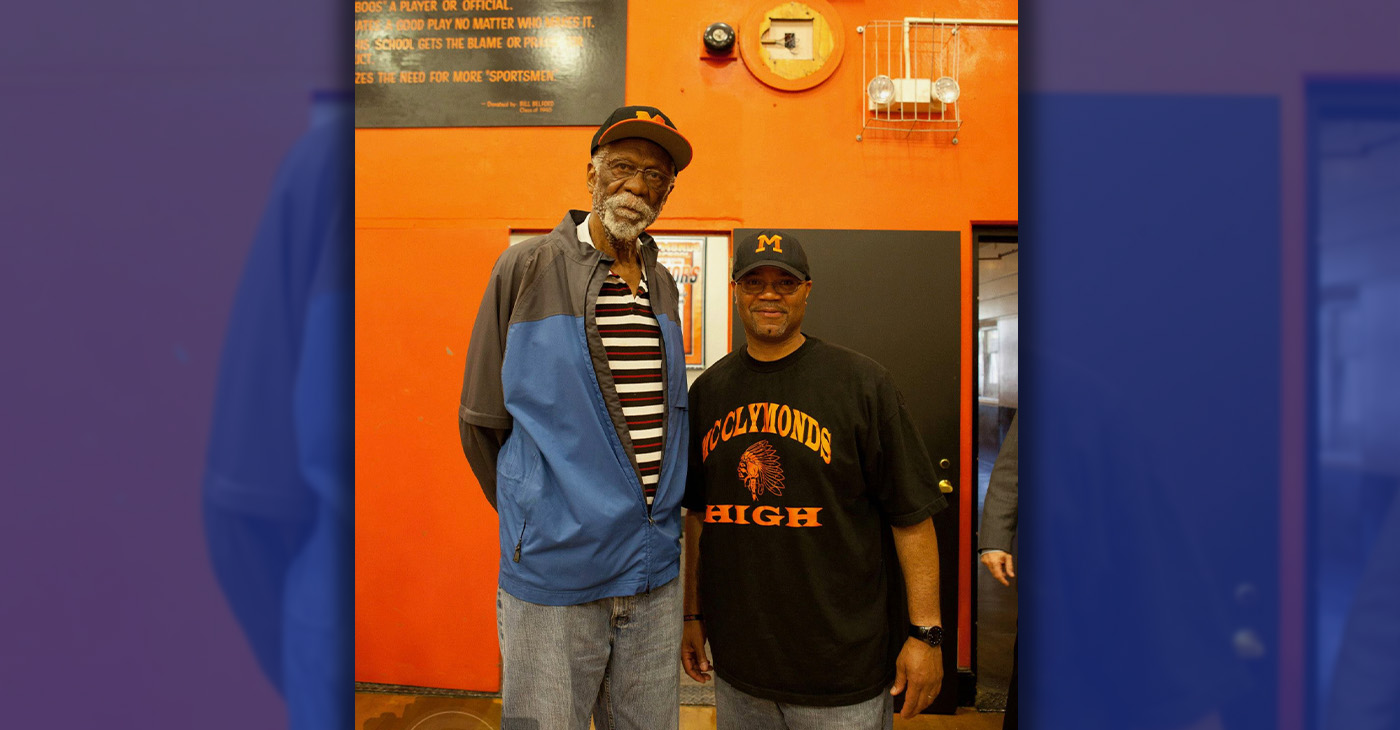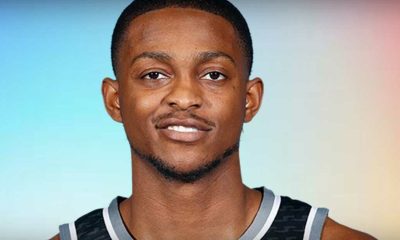Sports
Buster Douglas: ‘Belief’ Led Him to Stunning Upset of Tyson

In this Feb. 11, 1990, file photo, heavyweight boxer James “Buster” Douglas waves his gloved hand to the cheering crowd as he makes his way to the dressing room following a 10th round knockout victory over Mike Tyson in a scheduled 12-round championship bout at the Tokyo Dome. Others are unidentified. It’s been 25 years since one of the most stunning upsets in sports history. (AP Photo/Sadayuki Mikami, File)
RUSTY MILLER, AP Sports Writer
COLUMBUS, Ohio (AP) — An uppercut and three follow-up punches made James “Buster” Douglas a household name. And 25 years later, the brief heavyweight champion is still pleased his knockout of Mike Tyson ranks among the biggest upsets in sports.
“Being crowned champion was a dream for me,” Douglas said of his Feb. 11, 1990 upset. “To achieve that was the ultimate. It was awesome.”
A promising if enigmatic fighter, Douglas was given almost no chance of hanging around long with the undefeated heavyweight champion in their title fight in Tokyo. The bout was considered a tuneup for Tyson before an anticipated match with rising star Evander Holyfield.
In fact, the day before Tyson fought Douglas, promoter Don King called a news conference to discuss the dates and terms of that showdown. Douglas took note.
Douglas was a terrific athlete — he played small-college basketball — but was considered less than committed to boxing despite a 29-4-1 record as a professional. The son of club fighter Bill “Dynamite” Douglas, he had shown glimpses of promise but had also displayed a lack of heart and discipline at other times.
But roughly three weeks before the opening bell with Tyson, the person who believed in him the most, his mother, Lula Pearl, died.
Reminded this week that no one had thought he had a chance against Tyson, Douglas hesitated before saying: “Yeah, but she did.”
Tyson was boxing’s hope and its bane, a street tough who stepped into the ring in simple black trunks, black shoes and a sheared-off T-shirt. His temperament was erratic, at best. He could be emotional when he spoke of his late mentor and friend, Cus D’Amato, or he could also be raw, brutal and crude.
In the ring, he was a force of nature, always striding closer, always hurling punches, never yielding.
He was 37-0 with 33 knockouts heading into the fight. Las Vegas oddsmakers made him a 42-1 favorite to do his wrecking-ball thing against Douglas.
They weren’t alone. Ed Schuyler, a boxing writer for The Associated Press, was stopped at customs on his way into Japan. The customs officer asked Schuyler how long he would be working in Japan.
“About 90 seconds,” Schuyler deadpanned.
Just before the opening bell, someone in the crowd shouted to Douglas to win it for his mother.
The 6-foot-4 Douglas, with J.D. McCauley, his trainer and uncle, along with manager John Johnson in his corner, came out inspired. He held his own in the early rounds, holding off the shorter Tyson’s charge with his left jab.
Late in the eighth round, Douglas went down.
“I was kind of, like, admiring my work: Looking at him, taking my time to look at everything that was going on and paying more attention to how he was reacting to the punches instead of continuing to fight,” Douglas recalled. “He ended up catching me with a good shot. When I got up off the ground, I knew I had to get back on focus, on point, with what I was doing.”
King and Tyson would later claim that Douglas didn’t get up in the mandatory 10 seconds as the round came to an end. But by the official’s count, he was standing and in control of his faculties at the count of 8.
“I knew where I was the whole time,” he said. “I could have got up at six, but I had a couple of seconds and I took my time.”
After the fighters returned to their corners, Douglas dominated the ninth. Then in the 10th, he rocked the world.
“I finished him up with a combination,” Douglas said. “I hit him with four terrific shots. He wasn’t able to get up.”
King, seeing a gigantic payday floating away, appealed the outcome but, days later, all of the major organizations recognized Douglas as the champion.
“This makes Cinderella look like a sad story, what Buster Douglas has done here tonight,” HBO boxing analyst Larry Merchant said after the fight.
Through a spokesman, Tyson declined to speak with The Associated Press about the fight.
The two boxers have met each other only once since.
“We only crossed paths once, and that was a few years back down in Cincinnati,” Douglas said. “There wasn’t much conversation. It’s not like we sat down and talked about it and (became) friends, anything like that. He was still kind of short (with me). So I didn’t push it any further.”
Tyson’s life, in and out of the ring, has grabbed headlines for years. Meanwhile, Douglas is content to live a quiet life in a large home near a farming village 25 miles from his hometown of Columbus.
He quickly lost the heavyweight title to Holyfield in October 1990 in Las Vegas. His cut of his lone defense, estimated at $7 million after taxes, set him up for a comfortable existence.
Douglas is past struggles with weight and blood sugar, saying he now “could go a few rounds” at the age of 54.
He has thrown himself into raising his four sons with his wife, Bertha. He spends five days a week coaching young boxers at a local rec center and prides himself on how well they’re doing.
All these years later, he says it was no fluke.
“When I was itty-bitty and I first put on a pair of gloves when I was 10 years old, that was the beginning,” he said. “I just felt I could do anything. It was just a belief. I believed in myself and that I had the ability to do that. It’s something that my mother instilled in me at a very young age: You can do whatever you want.”
___
Rusty Miller can be reached at http://twitter.com/RustyMillerAP
Copyright 2015 The Associated Press. All rights reserved. This material may not be published, broadcast, rewritten or redistributed.
Alameda County
Seth Curry Makes Impressive Debut with the Golden State Warriors
Seth looked comfortable in his new uniform, seamlessly fitting into the Warriors’ offensive and defensive system. He finished the night with an impressive 14 points, becoming one of the team’s top scorers for the game. Seth’s points came in a variety of ways – floaters, spot-up three-pointers, mid-range jumpers, and a handful of aggressive drives that kept the Oklahoma City Thunder defense on its heels.

By Y’Anad Burrell
Tuesday night was anything but ordinary for fans in San Francisco as Seth Curry made his highly anticipated debut as a new member of the Golden State Warriors. Seth didn’t disappoint, delivering a performance that not only showcased his scoring ability but also demonstrated his added value to the team.
At 35, the 12-year NBA veteran on Monday signed a contract to play with the Warriors for the rest of the season.
Seth looked comfortable in his new uniform, seamlessly fitting into the Warriors’ offensive and defensive system. He finished the night with an impressive 14 points, becoming one of the team’s top scorers for the game. Seth’s points came in a variety of ways – floaters, spot-up three-pointers, mid-range jumpers, and a handful of aggressive drives that kept the Oklahoma City Thunder defense on its heels.
One of the most memorable moments of the evening came before Seth even scored his first points. As he checked into the game, the Chase Center erupted into applause, with fans rising to their feet to give the newest Warrior a standing ovation.
The crowd’s reaction was a testament not only to Seth’s reputation as a sharpshooter but also to the excitement he brings to the Warriors. It was clear that fans quickly embraced Seth as one of their own, eager to see what he could bring to the team’s championship aspirations.
Warriors’ superstar Steph Curry – Seth’s brother – did not play due to an injury. One could only imagine what it would be like if the Curry brothers were on the court together. Magic in the making.
Seth’s debut proved to be a turning point for the Warriors. Not only did he contribute on the scoreboard, but he also brought a sense of confidence and composure to the floor.
While their loss last night, OKC 124 – GSW 112, Seth’s impact was a game-changer and there’s more yet to come. Beyond statistics, it was clear that Seth’s presence elevated the team’s performance, giving the Warriors a new force as they look to make a deep playoff run.
Barbara Lee
WNBA’s Golden State Valkyries Kick Off Season with Community Programs in Oakland
“The Golden State Valkyries are more than a team—they’re a movement,” said Oakland Interim-Mayor Kevin Jenkins. “Their touchdown in Oakland marks a new era of opportunity, inspiration, and equity in sports. This partnership reflects our city’s deep commitment to uplifting women, investing in youth, and building a community where every dream has a place to grow. We’re proud to welcome the Valkyries to The Town.”

Team installs new nets at playgrounds, holds flag-raisings at City Halls in Oakland and S.F.
Special to The Post
The Golden State Valkyries brought the excitement of their inaugural season to every corner of the Bay Area with a full slate of community celebrations leading up to their historic home-opener against the Los Angeles Sparks at the Chase Center in San Francisco on Friday.
The week featured flag-raising ceremonies at city halls in Oakland and San Francisco, three “Violet Net” installation days at Oakland parks to encourage basketball play, fun “Hoopbus” takeovers at multiple schools presented by Kaiser Permanente, and player appearances.
“The Golden State Valkyries are more than a team—they’re a movement,” said Oakland Interim-Mayor Kevin Jenkins. “Their touchdown in Oakland marks a new era of opportunity, inspiration, and equity in sports. This partnership reflects our city’s deep commitment to uplifting women, investing in youth, and building a community where every dream has a place to grow. We’re proud to welcome the Valkyries to The Town.”
In total, 90 violet nets were installed on 45 basketball courts across 34 public parks throughout Oakland this week. A list of the parks receiving violet nets can be found at Valkyries.com.
About the Golden State Valkyries
The Golden State Valkyries, the WNBA affiliate of the seven-time NBA Champion Golden State Warriors, were announced as the 13th WNBA franchise on Oct. 5, 2023. According to Norse mythology, Valkyries are a host of warrior women who are fearless and unwavering – flying through air and sea alike.
This brand is Golden State’s modern interpretation of Valkyries: strong, bold, and fierce. Tipping off during the 2025 WNBA season, the team is headquartered in Oakland and will play home games at Chase Center in San Francisco. For Golden State Valkyries’ assets, including team logos, visit valkyries.com.
Activism
McClymonds High Names School Gym for Star Graduate, Basketball Legend Bill Russell
William “Bill” Felton Russell was born on Feb. 12, 1934, and died on July 31, 2022. He achieved fame as a U.S. professional basketball player who played center for the Boston Celtics of the National Basketball Association (NBA) from 1956 to 1969. He was the centerpiece of the Celtics dynasty that won 11 NBA championships during his 13-year career.

By Ken Epstein
West Oakland’s McClymonds High School, “the School of Champions,” this week named the school’s gymnasium in honor of one of its most famous graduates, basketball legend Bill Russell (class of ’52).
William “Bill” Felton Russell was born on Feb. 12, 1934, and died on July 31, 2022. He achieved fame as a U.S. professional basketball player who played center for the Boston Celtics of the National Basketball Association (NBA) from 1956 to 1969. He was the centerpiece of the Celtics dynasty that won 11 NBA championships during his 13-year career.
Russell is widely known as one of the greatest basketball players of all time. In 2011, he received the Presidential Medal of Freedom, the country’s highest civil honor, from President Barack Obama for Russell’s contributions to basketball and the Civil Rights Movement.
The McClymonds’ naming ceremony was held on Wednesday, the same day as Russell’s birthday. Oakland leader Bill Patterson, a longtime friend of Russell’s, was scheduled to cut the ribbon at the reopening of the gym, which had been closed for several months for renovation. Russell’s daughter Karen was scheduled to attend the ribbon cutting.
Russell’s name and signature are now printed on the gymnasium floor.
Patterson was working at DeFremery Park when he met Russell. “I befriended him as a boy and during his years at University of San Francisco” said Patterson. “We stayed friends for the rest of his life.”
Said McClymonds Principal Darielle Davis, herself a McClymonds graduate, “We are excited to honor Bill Russell for his sports accolades and because he broke color barriers. He is part of our legacy, and legacy is really important at McClymonds.”
Brian McGhee, community schools manager at McClymonds and former football player at UC Berkeley, said that Russell meant a lot to him and others at the school. “He was a beacon of light and hope for West Oakland,” he said. “He did a lot for sports and for civil rights.”
Starting in 2018, Ben “Coach” Tapscott worked with Patterson and other McClymonds grads, community members, and former coaches to encourage the Oakland Board of Education to endorse the naming of the school gym, which finally happened recently.
“We worked hard to make this happen,” said Tapscott. “He’s an important part of McClymond’s history, along with a lot of other famous graduates,” he said.
-

 Activism4 weeks ago
Activism4 weeks agoDesmond Gumbs — Visionary Founder, Mentor, and Builder of Opportunity
-

 Activism4 weeks ago
Activism4 weeks agoFamilies Across the U.S. Are Facing an ‘Affordability Crisis,’ Says United Way Bay Area
-

 Alameda County4 weeks ago
Alameda County4 weeks agoOakland Council Expands Citywide Security Cameras Despite Major Opposition
-

 Alameda County4 weeks ago
Alameda County4 weeks agoBling It On: Holiday Lights Brighten Dark Nights All Around the Bay
-

 Activism4 weeks ago
Activism4 weeks agoBlack Arts Movement Business District Named New Cultural District in California
-

 Activism4 weeks ago
Activism4 weeks agoLu Lu’s House is Not Just Toying Around with the Community
-

 Activism4 weeks ago
Activism4 weeks agoOakland Post: Week of December 17 – 23, 2025
-

 Black History3 weeks ago
Black History3 weeks agoAlfred Cralle: Inventor of the Ice Cream Scoop






















































